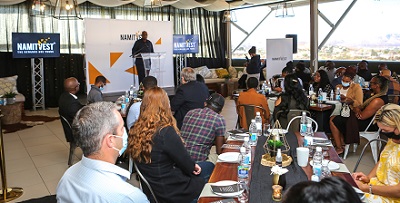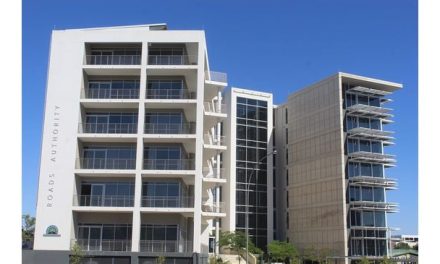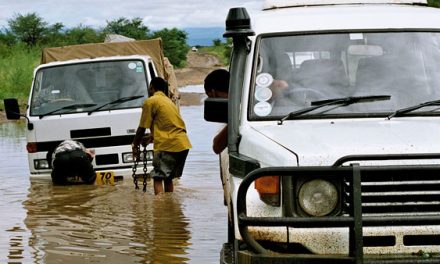
Namibia seeks to double its GDP by 2028 – NIPDB Executive

Dino Ballotti, Executive Director of Micro, Small, and Medium Enterprise Development at the Namibia Investment Promotion and Development Board (NIPDB), recently said that Namibia is one of the few African countries, or even countries globally, that intends to double its GDP over the next five years.
He highlighted that this is off the back of oil and gas and the green hydrogen mega-economy the country is working to promote.
Ballotti stated this in an interview with the Estonian Centre for International Development (ESTDEV) earlier this month, following a visit to Estonia with ESTDEV and NIPDB focusing on entrepreneurship and development cooperation.
Meanwhile, he heaped praise on Estonia’s efficiency and strategic planning, saying that the country’s e-governance systems “almost felt like Europe’s Silicon Valley.” “Engaging with the startup ecosystem, there was a lot of ingenuity and creativity. It was such a mind-blowing experience. Most of the things we are trying to do now in Namibia are off the back of those learnings,” he noted.
When asked about the Namibian business landscape, as well as the challenges and opportunities, Ballotti responded, “The Namibian business landscape is quite dynamic. I would also add that it is an evolving environment—we’re an emerging economy.”
“We face challenges like any other country, but I believe there are numerous opportunities. If we’re talking about diversification and investor-friendly policies, the government’s dedication is attracting a lot of foreign countries to local investment as well. For example, we’re very proud that we recently launched a digital nomad visa. It was an exciting—or rather enlightening—understanding from Estonia, to see how you do not need to have a large population to have a great impact.” he said.
He added, “When we consider some structural challenges, we are still a developing economy, which means we continue to face challenges with housing, which is a fundamental need for everyone. Public-private partnerships are crucial to our economic landscape, but there is always an opportunity for greater improvement and growth. There are now many obstacles to collaboration between the government and private entities. But I think as a government and as a nation, we are not looking at challenges. We’re simply looking at opportunities, such as building stronger partnerships, and we are proud and excited about Namibia’s future.”
Furthermore, ESTDEV announced 11 new projects in Africa, six of which are in Namibia and three of which are in collaboration with NIPDB. According to him, the projects are the result of meetings conducted by ESTDEV while he was in Tallinn, Estonia’s capital.
“For us to know that Namibia received six of the eleven projects is very exciting for the country. When discussing the “Entrepreneurial Minds” project and our work with TalTech, I often say, “You don’t know what you don’t know. So we’re quite excited to observe and learn about the best know-how, and we’re looking forward to the training programme. And, of course, this will be a big win as we expose more Namibians to it and show them what a truly advanced economy looks like,” Ballotti said, adding that development cooperation between Estonia and Namibia is of paramount importance.
He described it as embodying the spirit of international solidarity, in which countries with their own unique experiences and strengths may support mutual growth and sustainable development.
“In Estonia, the exchange of knowledge and expertise is advanced in a number of areas. This includes digital innovation, governance, and even entrepreneurship. How does this help Namibia’s development journey? By sharing these insights, Estonia can significantly help us improve in several fields.”
“Namibia has some unique learnings that we believe we can share with our Estonian counterparts. Namibia has done something noteworthy in terms of balanced economic growth and social noteworthy. Estonia can learn from some of these initiatives, and we believe there are many things we can learn from Estonia.”












































